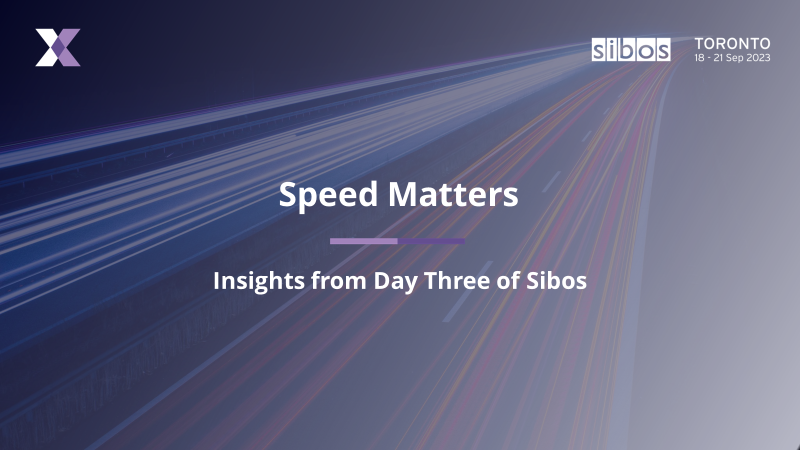Views
Speed matters: Insights from day three of SIBOS

Day three of SIBOS finds the world’s largest financial services conference still abuzz with activity. One consistent theme that was borne out from the day’s panels and discussions was speed. The modern global economy is a complex system of interlocking, ‘just-in-time’ supply chains. Global finance is no exception: speedy transactions – both domestic and international – are vital for financial institutions, and for the vitality of capital markets.
Today, delegates elaborated on this important theme: how can the desire for greater speed in international finance be met, and, equally, what might be the operational difficulties and risks involved in doing so? Read on for some key insights on this front.
T+1: getting there eventually
One priority of the financial community in North America is the need to move towards ‘T+1’ transactions, that is, a window of one business day between a transaction and a settlement. On a panel discussion on the topic, Frank La Salla, President of the Depository Trust and Clearing Corporation (DTCC), talked up the benefits of such a change. This reduction in transaction latency would, he argued, allow for financial institutions to be more flexible in their decisions, freeing up around $3.5-4 billion in capital for his company to deploy.
Of course, narrowing this transaction window is not without its risks. One perennial bugbear in this regard is forex. International payments often entail a foreign exchange transaction beforehand; with a shift to T+1 some have expressed concerns that forex traders may have difficulty clearing these transactions within this window. T+1, therefore, is not merely a simple administrative change – but one that goes to the heart of the operational questions that are always confronting global finance.
Up in the clouds?
Meanwhile, ACI Worldwide announced a partnership with Microsoft to develop a cloud-based real-time payments platform, dubbed the ‘Real-Time Payments Cloud’ (RTPC). It is hoped by both parties that the RTPC will reduce the latency of transactions by getting around the longstanding problem of interoperability. The RTPC elegantly sidesteps the problem of incompatible systems by creating a common platform that both parties to the transaction can use. Platforms like these, perhaps, herald a new model of payments: one that is less peer-to-peer than peer-to-platform-to-peer.
Time to think
At Proxymity, we know how valuable time is as a resource in the global economy. By re-establishing investor relations on an integrated real-time digital platform, Proxymity does much to accelerate the proxy voting and AGM process into the digital age. As a direct result of the digital vote execution capabilities developed and implemented by Proxymity in multiple markets including the UK, France and Australia, shareholders benefit from additional decision time because of an extended deadline. . This allows Investors the possibility to make more considered decisions based on detailed research and analysis by their expert governance teams. issuers benefit by receiving votes much earlier in the typical AGM lifecycle and provide confirmation back to shareholders ensuring trust and accuracy for all parties. Issuers are also able to provide a longer voting window which helps to ensure ever higher turnout and quorum.
